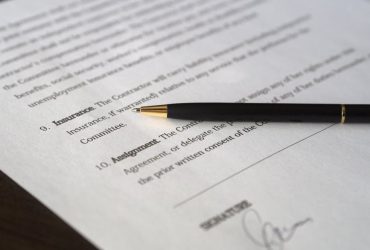Is It Necessary To Have Renters Insurance?
For most homeowners, insurance is a welcome requirement. For renters, the idea of getting insurance means having a definite addition to the monthly insurance bill. Many renters assume that the landlord’s insurance provides ample cover for hazards, because they own the property after all. So, is it really necessary to have renters’ insurance?
Well, the landlord’s insurance only covers what the landlord owns, and this is generally limited to the land and the physical structures on it. But anything inside these structures, especially those owned by tenants are excluded from the landlord’s insurance coverage. As you signed the lease papers when moving into the premises, you may have come across something that says it’s your responsibility to insure your property. But you either didn’t want to spend the money, or you missed this unknowingly.
What is Renter’s Insurance?
The insurance of the renter exists solely to protect the personal belongings of the tenants who don’t actually own the property in which they dwell in.it also diverts the liability of financial risks to the insurance company, which means that if an accident occurs on a rented property that you’re legally liable for, the financial damage is transferred to the insurer.
Examples of such accidents include leaving a bath tub open and destroying the personal belongings of the person living in an apartment beneath you, someone tripping over your rug and breaking their leg, or even burning down the entire building when shooting off fireworks indoors. The coverage includes all of your neighbors’ possessions.
Why Do You Need Renters Insurance?
As mentioned earlier, most apartment complexes and landlords typically have insurance covering the physical dwelling, leaving all your personal belongings vulnerable. Renters insurance protects your belongings in case of a disaster and offers coverage for damages caused by negligence.
There are many types of perils that cause loss of property and are thereby covered by renter’s insurance:
- Snow, ice, and sleet damage
- Electric surge damage
- Falling objects
- Theft
- Water damage from utilities
- Vandalism, riot, and mischief
- Volcanic eruption
- Aircraft and vehicles
- Hail and wind
- Explosion and smoke
While none of these is fun to think about, we can all agree that it’s a lot easier to plan ahead and make sure you’re protected, than getting caught unawares when it actually happens.
Just like with other forms of insurance, the renter chooses the amount of coverage and deductible, and will then be required to pay a monthly premium based on these, as well as a number of other factors. The coverage amount you choose should ideally account for the value of your belongings, to make sure there enough coverage to stay adequately protected in case of an accident.
What Exactly Does Renters Insurance Cover?
- Personal Property
Most of the standard renter’s insurance policies cover your personal belongings in case of the out-of-your-control perils we have listed above. However, most don’t offer protection from damage caused by earthquakes, flood water, nuclear hazards, or mudslides. The biggest reason to keep your rain gutters clean and flowing freely is to prevent water damage to your home. By doing this, you are saving yourself money on costly repair services in addition to insurance. So, if you live near a water body, a fault line, or you’re concerned about such hazards, be sure to talk to your insurance agent to get a separate policy.
Moreover, keep in mind that certain kinds of belongings will only be covered up to a given limit, which is typically set by the insurance company. For jewelry and fur it’s about $1,500, and $2,500 for electronics. So, if you have a customized computer, an expensive ring, or an expensive set of golf clubs inside your home, you should consider getting supplementary personal articles policy. Such addons are usually inexpensive and will offer ample protection for the sentimental and expensive items that would be very expensive to replace. You can check home insurance rates in Ohio.
- Liability
The liability coverage pays for property damage and bodily injury caused by negligence. This includes instances like when your pet gets loose and bites a kid, who then needs to get stitches. However, you’re not covered for: negligence for intended or expected bodily injury, such as when you throw a baseball in a parking lot trying to hit a neighbor; vehicle related injury or damage such as when your emergency brake fails and your parked car hits another vehicle; or business pursuits such as when the muffins you bake in your apartment gives someone food poisoning.
- Loss of Use
Most policies do cover for living expenses if you are forced to vacate your house after a catastrophe. For example, when a tree smashes onto the roof and the room needs big repairs before it can become habitable again, the loss of use essentially covers your hotel stay, food, and all other costs incurred during that time while the professional, like this roofer in Greensboro, get to work on any repairs and/or replacements needed to the property.
- Additional Coverage
Aside from the basic, you should know a few more types of coverage. If one of your visitors suffers injury from your home, the “medical payments to others” part of your policy will take care of all the medical bills regardless of who was at fault.
The “bank and credit card forgery” will cover you against various fraud attempts, like when a burglar makes away with your checkbook or credit card after breaking into your home writes fraudulent checks or makes fraudulent charges. There’s also the “property of others” coverage, which replace your belongings and those of others. For instance, if you borrowed a laptop from your friend and a leaking pipe in your home destroys it.
How Much Coverage is Enough?
Most landlords require that their tenants have a $100,000 minimum liability coverage. But if your landlord doesn’t have one, your insurance agent can help you determine the amount of coverage you need. When determining property damage coverage, the first question your agent will ask is how much your stuff is worth. it’s not an easy question as it might sound, however, the general rule of thumb is coverage of $30,000 to $50,000 for apartments and about $100,000 for large homes. So if there is any damage from water, as an example, landlords can call in water damage in Fontana companies (or wherever they are based), to get it sorted without paying out a hefty amount.
It’s important to keep photos or videos of your place in a secure place to have a good record of everything you have. This will ensure that in case of a disaster, you can produce a record of everything, and at that point you can easily go through how much everything is worth.
Despite the extra monthly payments, let’s face it, renter’s insurance is a small price to pay for the coverage you’d wish you had in case of a catastrophe and the peace of mind it provides. Think about it, at the cost of a take-out meal every month, you can protect your important belongings and avoid having to start all over again when disaster strikes.




